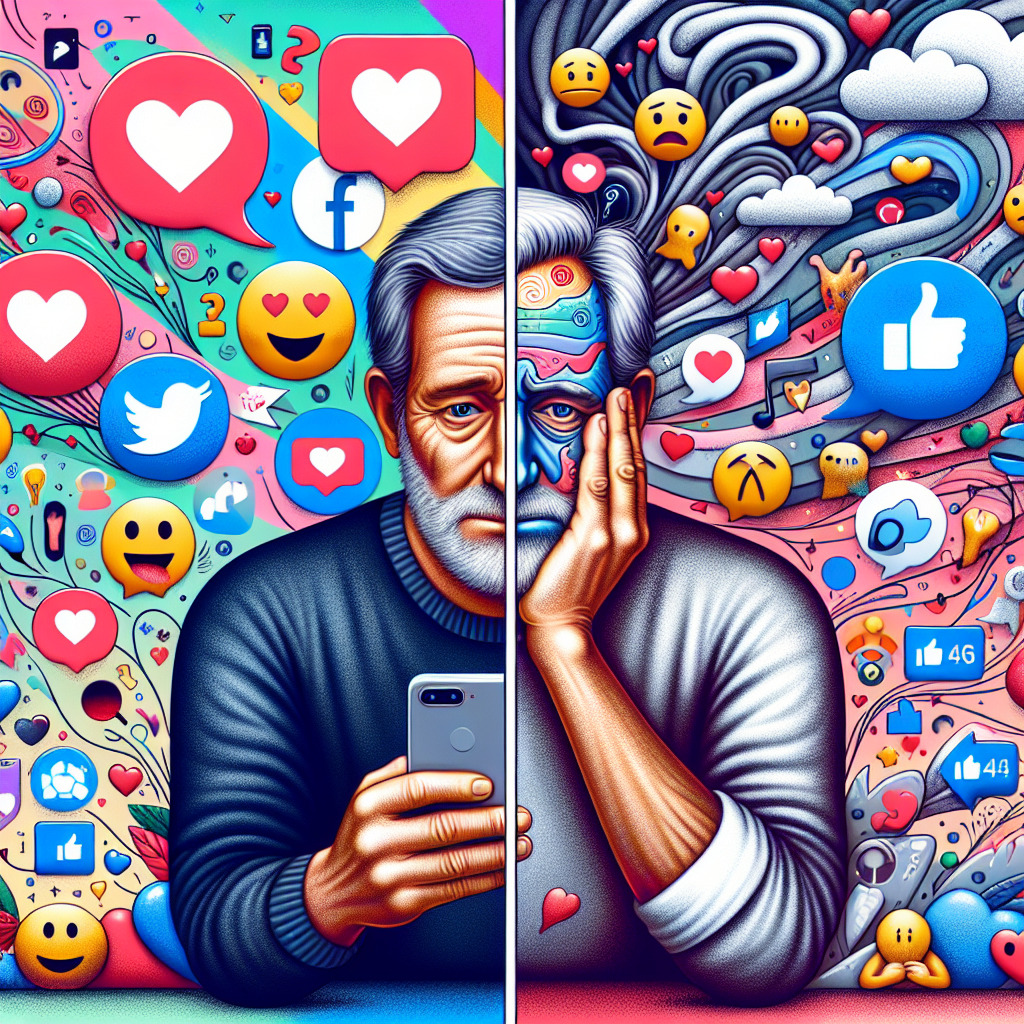Key Takeaways
The Digital Influence on Adult Emotions
In the modern age, social media platforms have integrated into almost every aspect of daily life. From checking morning news updates to sharing personal milestones, social media is a constant companion. However, as much as it fosters connectivity, the question arises: how does social media impact adult mood and behavior?
The Perception of Reality
Social media often presents a curated version of reality. Individuals and businesses alike showcase idealized versions of life, which can skew perceptions of the real world. Users may compare their own lives unfavorably to the seemingly perfect experiences shared by others. This persistent comparison can lead to feelings of inadequacy and depression, making it a double-edged sword.
It’s important to remember that what we see online is usually just the highlight reel of someone’s life. Understanding this can help users navigate the digital world without feeling downhearted about their own lives.
The Role of Algorithms
Social media platforms use advanced algorithms to decide what content appears on your feed. These algorithms are designed to maximize user engagement, often by showing content similar to what you have interacted with in the past. While this feature helps tailor a unique experience, it can also trap users in echo chambers, exposing them only to perspectives and news that reinforce their existing beliefs.
This selective exposition can influence behavior, leading to polarized views and an inability to understand or empathize with differing perspectives. Consequently, users must consciously diversify their media consumption to ensure a more balanced worldview.
Online Interactions and Offline Implications
While social media can foster meaningful connections, it can also adversely affect face-to-face interactions. Studies suggest that over-reliance on digital communication may impede our ability to engage in live conversations. These platforms often facilitate interactions that lack the nuances of in-person communication, such as body language and vocal tone, which are crucial for understanding and empathy.
The Impact on Real-Life Relationships
In some cases, individuals may prioritize online interactions over physical relationships, leading to social isolation. This shift can negatively impact one’s mental health and exacerbate feelings of loneliness. Furthermore, the perpetual need to document and share every event might detract from genuinely experiencing moments, diminishing personal satisfaction and enriching bonds with loved ones.
Balancing Digital and Real Worlds
The key to mitigating the negative impacts of social media lies in achieving a balance between digital and real-world interactions. Users should aim to be more present in their immediate environment and reserve online activities for those times when they genuinely add value to their lives.
Being mindful of screen time, setting boundaries, and consciously engaging with diverse content can ameliorate the potential downsides of prolonged social media use. Encouraging actual interaction and hobbies outside of the digital realm further enhances mental well-being.
Positive Uses of Social Media
Despite its potential pitfalls, social media can be a powerful tool for spreading positivity and inspiration. From discovering new ideas to joining supportive communities, the internet offers countless opportunities to enhance one’s mood and broaden horizons.
Connecting with Like-Minded Communities
Social media’s power lies in its ability to connect individuals across the globe. Finding communities based on shared interests and experiences can provide support and a sense of belonging. Participating in groups centered around hobbies or causes you care about can foster a rich environment for personal growth and learning.
Educational Content
Social media platforms can be bastions of knowledge, offering everything from DIY tutorials to in-depth academic discussions. Curating a feed filled with informative and positive content can be a source of daily inspiration and learning, counteracting the negativity often associated with social media.
The Path Forward
Ultimately, the impact of social media on adult mood and behavior is determined by how individuals choose to use it. Social media’s pervasive presence can be challenging, yet it remains possible to harness its potential positively. By approaching it mindfully, individuals can minimize its negative effects, promoting mental and emotional well-being.
In this digital age, self-awareness and conscious consumption hold the key to experiencing the best of what social media offers without falling into its traps. The digital world is incredibly vast and powerful—let’s make sure we’re using it wisely.

